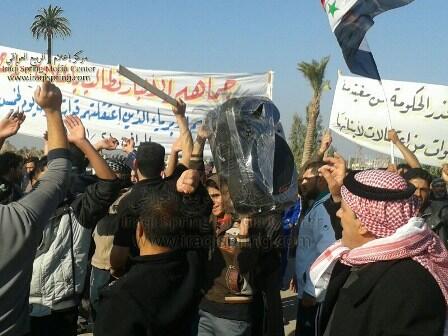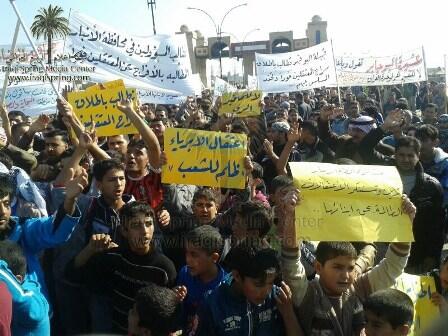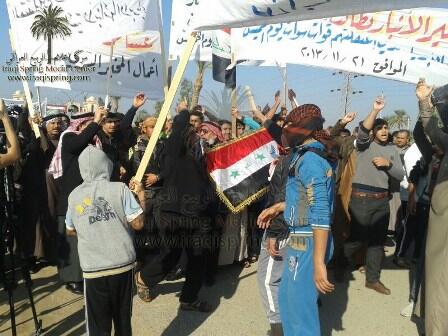In 2010, the results weren't honored.
Despite Iraqiya winning the 2010 elections, the head of the political slate, Ayad Allawi, did not become prime minister.
Why?
Because Nouri al-Maliki refused to leave office.
He'd lost.
But he refused to leave office.
For eight months he would refuse.
Instead of backing democracy, the White House backed loser Nouri. The White House brokered The Erbil Agreement, a contract that rejected the votes of the Iraqi people, to give Nouri a second term.
And here's what's really interesting. In the lead up to the election, one American saw the possibility of Nouri losing and refusing to honor the election.
That was the then-top US commander in Iraq General Ray Odierno.
The White House didn't want to listen.
Last week, Jim Michaels (USA Today) quoted Odierno stating, "I still believe they can be a great country but they have to solve their differences between the different factions. They need leadership that allows them to do that. That's what I worry about."
They do need leadership and they haven't had it in Nouri al-Maliki's first term or in his second. But Nouri wants a third term.
We don't see leadership with that.
There are the problems and divisions Nouri has created within Iraq.
For example, since December 21st, protests have been taking place in Iraq. Zvi Bar'el (Haaretz) observed this fall that the protests have taken place in spite of obstacles, "For its part, the regime has done all it can to prevent major demonstrations. The centers of the cities have been flooded with police. Cars fitted with loudspeakers have been banned from the streets and major access roads have been closed off. And there is a new directive which, in violation of Iraqi law, bans demonstrations out of 'concern for security risks.' None of this has managed to quell the protest and the regime understands that the demonstrations are liable to spread, posing a threat to the government." Iraqi Spring Media reported on Friday's protests in Rawa, Falluja, Ramadi, Jalawla, Tikrit, Samarra, among other places. Iraqi Spring Media Tweeted the following:
That's what Nouri's 'leadership' has brought. Sunnis demanding that they stop being targeted with false arrests and demanding public services.
Which brings us to Iraq's more immediate problem at present.
The sewage systems in Iraq were last upgraded in the seventies. Though Iraq takes in billions now (over $100 billion in oil last year alone), Nouri refuses to spend that money on the people. They do without basic services. The crumbling infrastructure continues to decay.
In terms of the sewers?
That means when it rains, water stands in streets.
That's not healthy. It's not safe.
And Iraqi is back in its yearly heavy rain season.
The flooding is on Nouri. People have had to leave their homes because of flooding, people have died because of the flooding.
And Iraqis are getting tired of the corruption that allows Nouri's son to spend millions and millions of Iraqi money while the people do without.
What's in store for Iraq in May?
Neither the country nor the people can afford four more years of Nouri.
 اعلام الربيع العراقي
اعلام الربيع العراقي 


